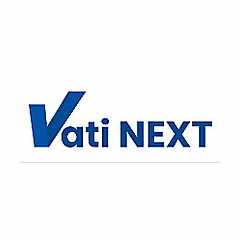
In today’s competitive job market, a long-standing debate continues: What holds more value, education or experience? As industries evolve and workplace demands shift, the answer to this question remains elusive and heavily dependent on the specific field, role, and organization in question. Both education and experience have undeniable merits, but which one takes precedence when it comes to landing a job, advancing in a career, or ensuring long-term success?
This article aims to explore the importance of education and experience, examining their roles in shaping careers across various industries, how employers weigh these factors, and how they impact job seekers and employees alike.
1. Understanding Education and Its Role in the Job Market
Education typically refers to formal academic training provided by institutions such as schools, colleges, and universities. It serves as the foundation of knowledge acquisition, where individuals are exposed to theories, concepts, and practical applications related to various fields of study.
Advantages of Education in the Job Market:
Credential Validation: Many industries, especially those in specialized fields like medicine, engineering, law, or architecture, require formal education. Degrees and certifications serve as proof that an individual possesses the knowledge required to perform a role. Employers in these sectors often demand specific qualifications as part of their hiring criteria, making education non-negotiable.
Foundation of Knowledge: Education provides a strong theoretical foundation. In many cases, jobs require individuals to apply scientific or technical knowledge, which is difficult to acquire without formal training. For example, an engineer must have a thorough understanding of physics, mathematics, and materials science to design and build infrastructure.
Adaptability to Evolving Roles: A well-rounded education can prepare individuals to adapt to new technologies, methodologies, and practices. Many degree programs are designed to teach students not only the current standards but also how to learn, research, and apply new information as their industry evolves.
Access to Networking Opportunities: Universities and educational institutions often provide networking opportunities that can lead to internships, job offers, and career mentorship. Alumni networks, career fairs, and industry connections are valuable resources that can jumpstart a career.
Employability in Structured Job Markets: In fields like academia, research, healthcare, and government, education is often prioritized. A formal qualification is frequently a baseline requirement to enter and advance in such careers.
However, while education offers these advantages, its importance can vary depending on the industry, the level of the job, and regional economic conditions.
Introducing Vati is a comprehensive career planning and assessment platform that helps individuals make informed decisions by evaluating both education and experience. Through personalized assessments and insights, Vati guides users in aligning their skills, qualifications, and career goals, ensuring a balanced approach to success in today’s competitive job market.
Challenges with Relying on Education Alone:
Lack of Practical Experience: Many graduates face a significant hurdle after completing their education: they possess theoretical knowledge but lack hands-on experience. Employers may be hesitant to hire candidates without practical skills, even if they hold advanced degrees. In some industries, real-world problem-solving and a proven track record are just as important, if not more so, than academic accomplishments.
Rising Costs of Education: The cost of higher education has skyrocketed in many parts of the world, leading to high levels of student debt. This creates financial stress for graduates, sometimes without guaranteeing a job that can pay off their investment in education. As a result, some individuals question whether formal education is always worth the price.
Education Can Become Obsolete: In fast-moving industries such as technology, the knowledge gained in a degree program can become outdated quickly. A degree earned five years ago may no longer be relevant in a world where new tools, platforms, and methodologies have taken over.
Read More: Education vs. Experience: What Matters More in Today’s Job Market?
Read More Articles:







Write a comment ...